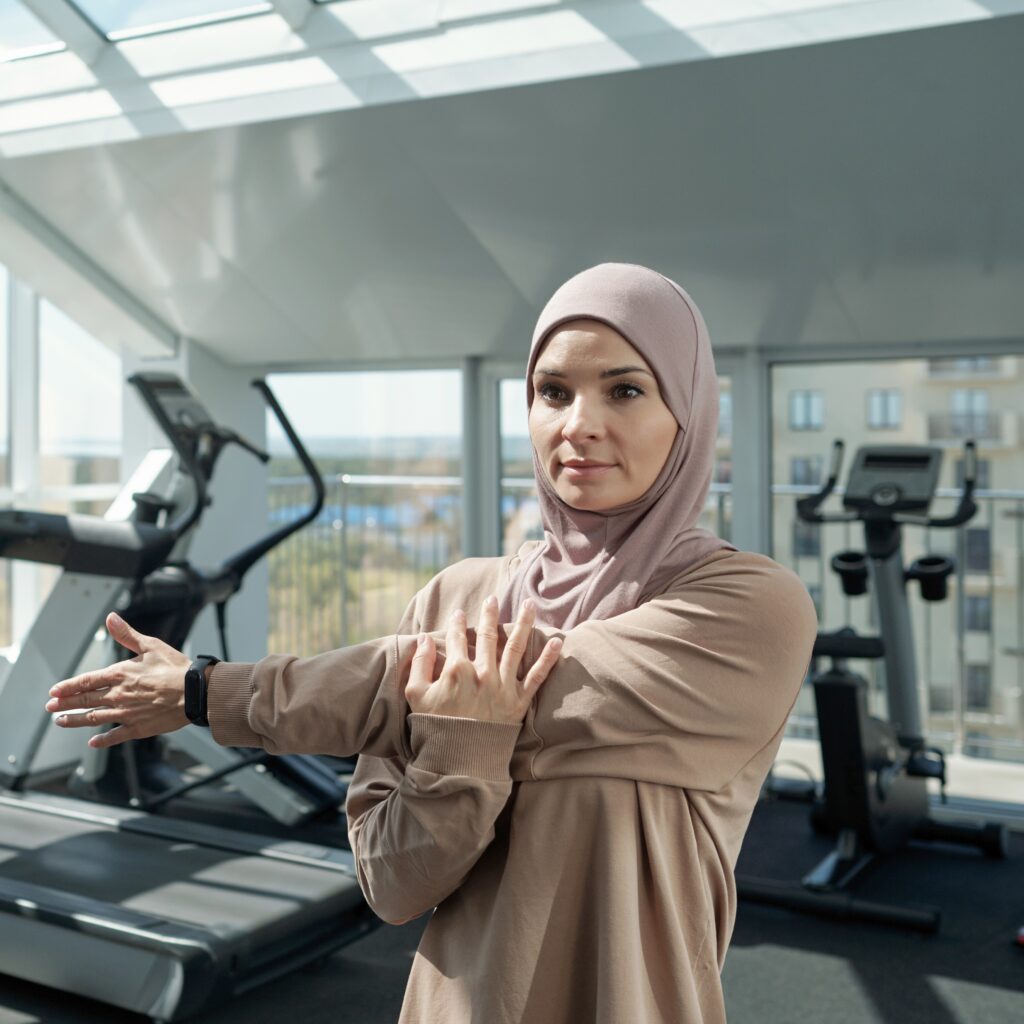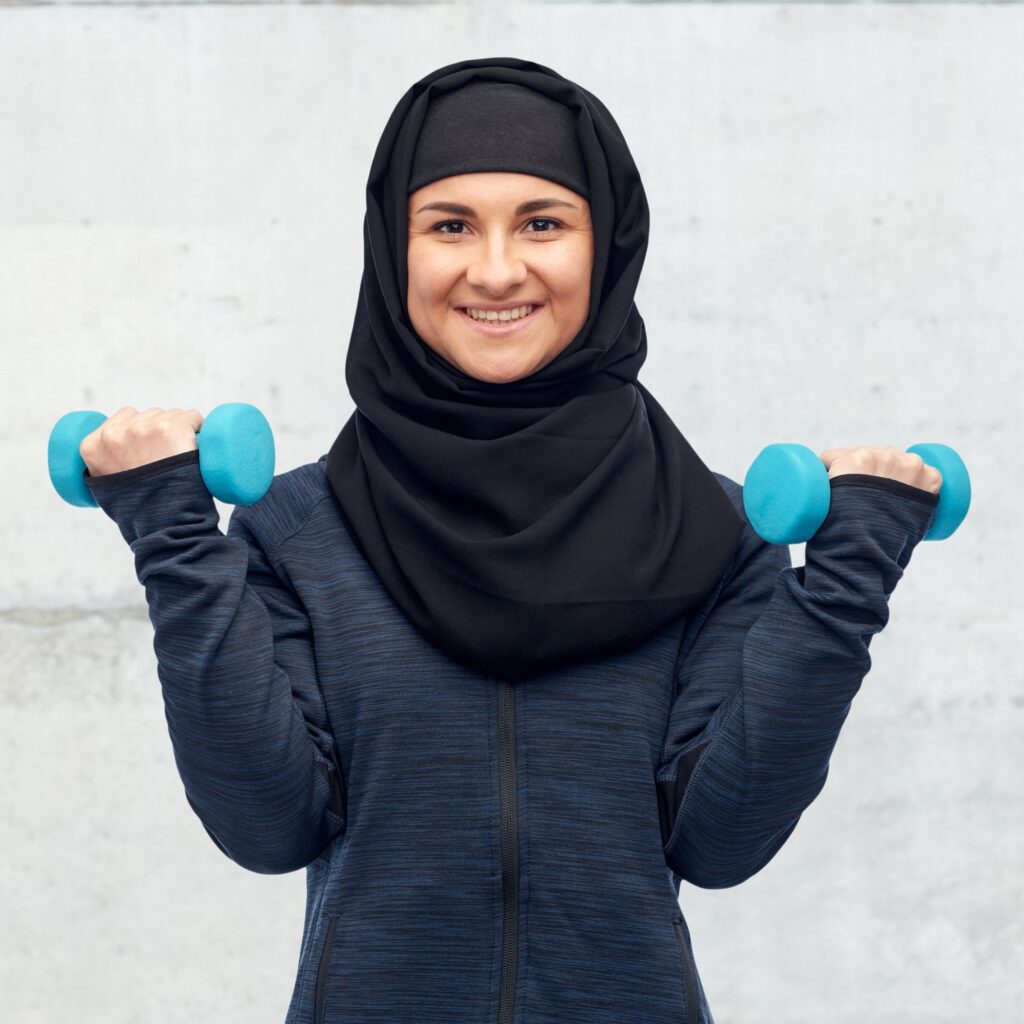In Islam, health is considered a blessing from Allah, and believers are encouraged to take care of both their physical and spiritual well-being. A balanced lifestyle that includes regular physical activity can enhance mental clarity, energy levels, and overall well-being, allowing Muslims to perform their daily acts of worship more effectively. This article delves into the importance of exercise in Islam, the Prophet Muhammad’s (peace be upon him) guidance on maintaining health, and how physical fitness can be an act of worship.
Why Islam Encourages Physical Fitness
Islam encourages believers to be strong and healthy, viewing physical fitness as a means of honoring the body Allah has given us. In a hadith, the Prophet Muhammad (peace be upon him) said:
“The strong believer is better and more beloved to Allah than the weak believer, while there is good in both.” (Sahih Muslim 2664)
This hadith highlights the value of physical strength, not only for personal benefit but also for serving the community. A strong believer is better equipped to support others, perform acts of worship, and contribute positively to society.

Physical Fitness and its Role in Islamic Worship
- Enhanced Energy for Worship
Physical activity improves stamina and energy levels, making it easier to fulfill daily obligations, such as the five daily prayers, fasting, and charitable acts. When the body is fit, believers can focus more on spiritual practices without being hindered by physical discomfort. - Mental Clarity and Focus in Prayer
Exercise has been shown to reduce stress, anxiety, and depression, leading to a clearer mind. This mental clarity is essential in Islam, particularly when focusing on prayer, Quran recitation, and reflection. - Self-Discipline and Patience
Engaging in regular physical activity requires commitment and discipline. These qualities also play a significant role in Islamic practices, such as fasting and following the Sunnah.
Examples of Physical Activities in the Sunnah
The Prophet Muhammad (peace be upon him) himself engaged in physical activities, encouraging believers to do the same. Here are some examples:
- Walking and Running
The Prophet walked regularly and encouraged others to walk to the mosque for prayer. Walking not only strengthens the body but is also an opportunity to reflect on Allah’s creation. - Horseback Riding and Archery
The Prophet emphasized skills such as horseback riding, archery, and swimming. These activities were recommended not only for self-defense but also for recreation and physical development. - Wrestling and Physical Play
Wrestling was a common activity during the Prophet’s time, and he himself participated in it. Physical play and sports build strength and camaraderie among believers, fostering a healthy lifestyle.

The Health Benefits of Exercise from an Islamic Perspective
Maintaining physical health is a form of gratitude to Allah, and it enables us to serve Him better. Here are some health benefits that align with Islamic values:
- Cardiovascular Health
Regular exercise strengthens the heart, enhances circulation, and helps prevent diseases. A healthy heart is essential for a vibrant life, allowing one to carry out duties and worship with vigor. - Mental Resilience and Emotional Stability
Exercise releases endorphins, which improve mood and reduce stress. A balanced emotional state allows believers to approach worship and daily life with patience and gratitude. - Improved Flexibility and Mobility
Many acts of worship, like prayer, require flexibility and physical movement. Exercise can help maintain joint and muscle health, allowing believers to perform these acts comfortably into old age.
Tips for Incorporating Exercise into a Muslim’s Daily Routine
- Start with Small Steps
Begin by incorporating short walks or light stretching into your day. For example, walk to the mosque for prayer or take a few minutes before Fajr prayer to stretch and prepare the body. - Combine Exercise with Worship
Physical activity doesn’t have to be separate from worship. A nature walk, for instance, can be an opportunity for dhikr (remembrance of Allah), allowing you to engage in both physical and spiritual practices. - Set Realistic Goals
Create a fitness routine that suits your lifestyle and capacity. Whether it’s a daily walk, weekly swimming, or attending a martial arts class, setting realistic goals will help you maintain consistency. - Seek Halal Recreational Activities
Find exercises and sports that align with Islamic values, promoting modesty and respect. Swimming in a private setting or exercising with family and friends are good options that promote health within Islamic guidelines.
Exercise as a Form of Self-Care in Islam
In Islam, self-care is about nourishing both the body and soul. By caring for the body through exercise, believers can prevent illness, improve longevity, and ultimately be in a better state to worship and fulfill their responsibilities. Islam’s holistic approach to self-care encompasses physical, mental, and spiritual health, encouraging believers to maintain balance.

Addressing Common Misconceptions about Exercise in Islam
- Is Physical Fitness Distracting from Worship?
Physical fitness is complementary to worship. A healthy body supports a strong spirit, allowing believers to perform their religious duties with ease. - Can Women Participate in Physical Activities?
Yes, Islam encourages women to care for their health and engage in physical activity, as long as it is conducted in a manner that upholds Islamic principles of modesty. - Is Strength Only for Physical Power?
Strength in Islam is both physical and spiritual. While a strong body is beneficial, a strong will, resilient character, and steadfast faith are equally important. Physical fitness supports mental and emotional strength, contributing to a believer’s overall resilience.
Conclusion
Incorporating exercise into daily life aligns perfectly with the Islamic emphasis on maintaining a balanced lifestyle. Physical fitness is not merely a matter of personal health; it’s a way to show gratitude for Allah’s blessings, enabling believers to serve their families, communities, and ultimately, Allah Himself. By following the Prophet’s example and taking care of our physical well-being, we honor the body given to us, enhance our worship, and bring balance to our lives. Embrace the concept of exercise as a form of worship, integrating it with your spiritual journey to achieve a healthy, fulfilled life in line with Islamic teachings.
